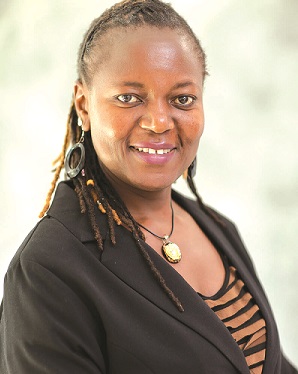
The Sunday Mail

Mariam Tose Majome
CITIZEN journalism is also known as collaborative media, participatory journalism, democratic journalism, guerrilla journalism or street journalism.
It existed long before the invention of the printing press because people have been creating and sharing information from the dawn of time.
Citizen journalism is when ordinary people, without any formal journalism training, actively collect and report news.
Rapid technological changes in communication — which have seen use of media-enabled devices like computers, smart phones and the internet — mean expansion of citizen journalism. Many people are citizen journalists without even knowing it.
Social networking sites, information sharing platforms, software applications, desktop publishing software, mobile phone cameras and blogging software all enable the spread and growth of citizen journalism.
There are positive and negative sides to citizen journalism. The most positive aspects are that it fills gaps left by traditional news sources and lends balance to the propaganda inherent in the mainstream media.
Citizen journalists provide alternative angles regarding important issues, for example, the Russia-Ukraine conflict and the Covid-19 pandemic. They are the ones who mostly provided alternative important information about Covid-19 that governments and big pharmaceutical companies wanted to keep hidden.
These pseudo journalists also often share important news quicker than traditional media houses.
The negative side of citizen journalism is often the failure or wilful refusal to adhere to professional journalism ethics. Failure to stick to ethical conduct can be due to ignorance because of lack of training.
Disinformation and conspiracy theories are also closely associated with citizen journalism. This can have very negative consequences, for example, the rise of anti-vaccine sentiments worldwide, ignorance and bigotry.
The informality and anonymity of online citizen journalism impinges on regulation because the internet is impossible to control. Trained journalists and other media practitioners usually form professional associations to protect their rights and uphold standards of the profession.
However, citizen journalists are not obliged to do this and are free to use their own devices and set their own standards, if at all.
Because professional journalists are subject to regulation, they are expected to respect ethical guidelines of the profession. Regulation enables recourse for people when they have been harmed by professional journalists but the same cannot be said in the case of citizen journalists. It is almost impossible to get redress and compensation from citizen journalists, unless they can be positively tracked and prosecuted.
Citizen journalists usually do not have respect for or knowledge of basic ethical journalism practices like giving people the right of reply, respecting privacy and protecting vulnerable people like children. They also do not adhere to responsible and legitimate use of recording equipment that professional journalistic codes prescribe. Many illegal recordings and privacy breaches can be traced to citizen journalists.
Professional journalists usually submit themselves to regulation because of the benefits of expert association and control. There are different models of media regulation — from total state control to self-regulation or a mixture of the two — in different countries. In the United Kingdom, for instance, both public and private broadcasters are regulated by the Office of Communications under the Communications Act of 2003.
In Zimbabwe, the Zimbabwe Media Commission oversees regulation of the media industry through a Constitutional mandate.
◆ Miriam Tose Majome is a commissioner at the Zimbabwe Media Commission



